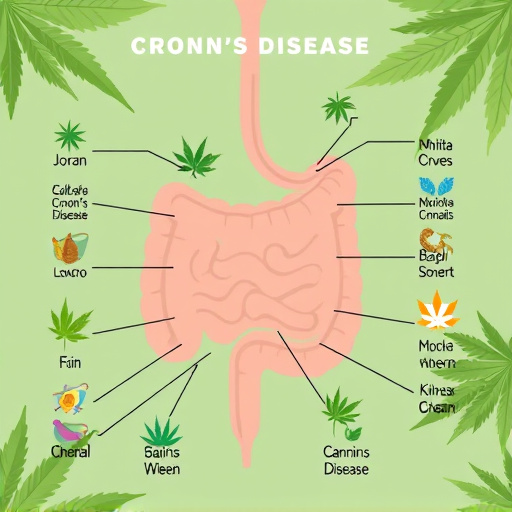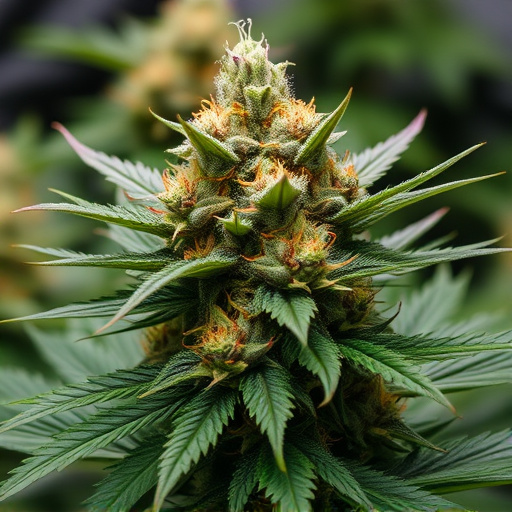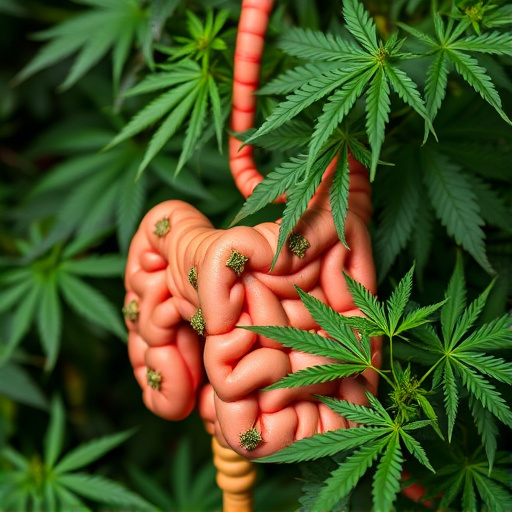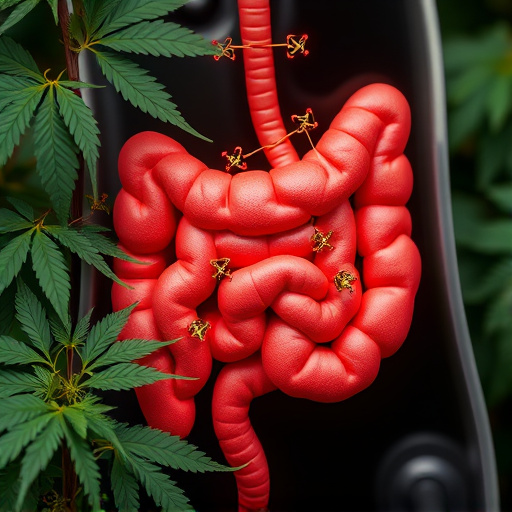Cannabis, particularly specific crohn's disease cannabis strains, offers potential relief for Crohn's Disease symptoms, including pain, inflammation, and nausea. Indica and hybrid strains, rich in CBD, are popular choices due to their anti-inflammatory properties and lack of psychoactive effects. Balancing THC and CBD levels is crucial; high THC can worsen intestinal issues while CBD reduces inflammation and anxiety. Patients should consult healthcare professionals before using cannabis for Crohn's management.
For individuals living with Crohn’s disease, cannabis has emerged as a potential treatment option. However, it’s crucial to understand its impact and navigate potential negative effects. This article delves into the intricate relationship between cannabis and Crohn’s, exploring specific strains suited for symptom management. We also provide practical strategies to minimize adverse reactions and optimize treatment, empowering patients to make informed decisions about incorporating cannabis as a complementary therapy.
- Understanding the Impact of Cannabis on Crohn's Disease
- Exploring Suitable Cannabis Strains for Management of Crohn's Symptoms
- Strategies to Minimize Negative Effects and Optimize Treatment
Understanding the Impact of Cannabis on Crohn's Disease

Cannabis has been gaining attention for its potential therapeutic effects, including its use in managing symptoms of various conditions, such as Crohn’s Disease. While cannabis can provide relief from pain, inflammation, and nausea associated with Crohn’s, it’s crucial to understand that the impact isn’t universal. Different cannabis strains offer varied effects, with some specifically bred to cater to patients with Crohn’s. Choosing the right strain is essential; high THC levels can exacerbate intestinal issues in susceptible individuals, while CBD-rich strains may help reduce inflammation and anxiety without causing adverse gastrointestinal effects.
Research suggests that cannabis can interact with the endocannabinoid system, which plays a role in regulating gut health. However, more studies are needed to fully comprehend these interactions. Until then, patients should consult healthcare professionals before incorporating cannabis into their treatment plans, especially if they have a history of sensitive digestive systems or Crohn’s Disease flares.
Exploring Suitable Cannabis Strains for Management of Crohn's Symptoms

For individuals living with Crohn’s disease, exploring the potential benefits of cannabis as a management tool can be a game-changer. Certain cannabis strains have been shown to alleviate symptoms associated with Crohn’s, offering a natural approach to pain and inflammation reduction. Research suggests that specific cannabinoids present in various strains may interact with the body’s endocannabinoid system, playing a role in modulating immune responses and reducing intestinal inflammation.
When considering cannabis for Crohn’s disease management, it’s crucial to focus on strains known for their anti-inflammatory and analgesic properties. Indica and hybrid strains often top this list due to their ability to induce relaxation and reduce muscle spasms. Popular options include strains with high CBD content, as CBD has been extensively studied for its potential in soothing inflammation without the psychoactive effects associated with THC. Exploring different crohn’s disease cannabis strains can help patients find a suitable option that provides relief while minimizing adverse effects.
Strategies to Minimize Negative Effects and Optimize Treatment

For individuals with Crohn’s disease considering cannabis as a treatment option, it’s crucial to understand that different strains can significantly impact users differently. To minimize negative effects and optimize therapeutic benefits, exploring specific cannabis strains tailored for inflammation and pain management is essential. Indica strains, known for their relaxing and sedative properties, can help reduce muscle spasms and promote better sleep, common challenges faced by Crohn’s disease patients.
Additionally, focusing on high CBD (cannabidiol) content strains can be beneficial as CBD has anti-inflammatory properties and may aid in soothing intestinal discomfort without causing psychoactive effects. Balancing THC (tetrahydrocannabinol) levels with CBD is key; moderate doses of THC can provide pain relief while keeping side effects minimal. Consulting with a healthcare provider or a knowledgeable budtender to identify the best cannabis strains for individual needs is advisable, ensuring a safe and effective treatment approach.














